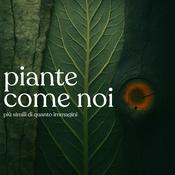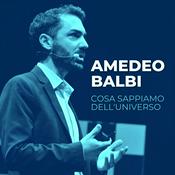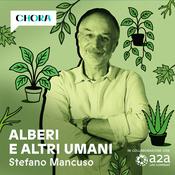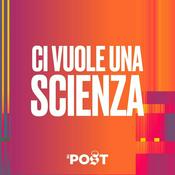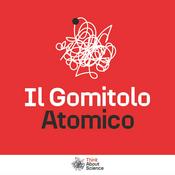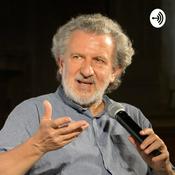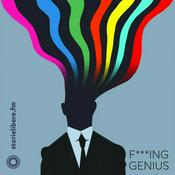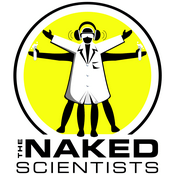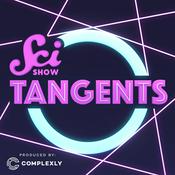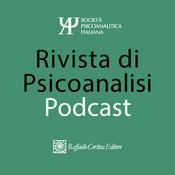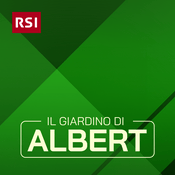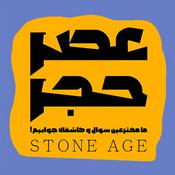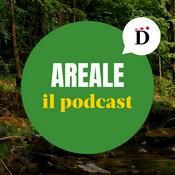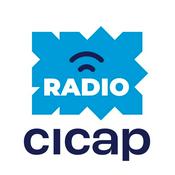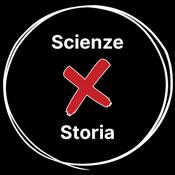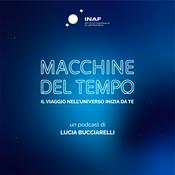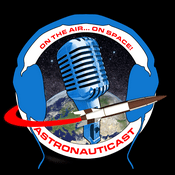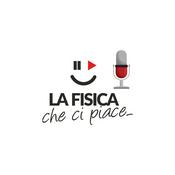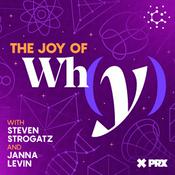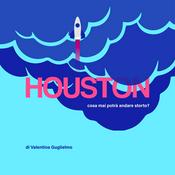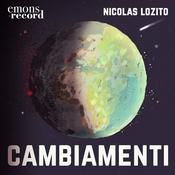The HPS Podcast - Conversations from History, Philosophy and Social Studies of Science
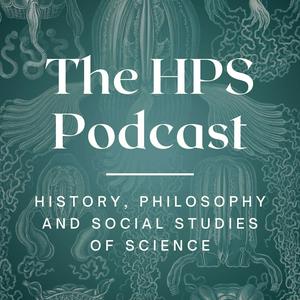
75 episodi

S5 E11 - Steven Shapin on the Social Life of Scientific Knowledge
19/10/2025 | 50 min
This week, Thomas Spiteri speaks with Steven Shapin, Professor Emeritus of the History of Science at Harvard. Shapin reflects on his path into the history and sociology of science and discusses the central concerns of his work: how knowledge is produced, the social foundations of trust in science, the embodied nature of knowledge, and the performance of expertise. He revisits Leviathan and the Air-Pump, co-authored with Simon Schaffer, outlining the Boyle–Hobbes controversy and showing how seventeenth-century scientific credibility depended on rhetoric, social standing, and performance, while highlighting the broader relevance of the book’s insights into the social foundations of knowledge. Shapin considers contemporary challenges, including political interventions in science and universities, the effects of digital communication, and the fragmentation of expertise, and reframes the “crisis of truth” as a crisis of social knowledge.Finally, he connects these themes to his recent work on taste and eating (Eating and Being), examining how communities form shared judgments about food and flavour, paralleling the intersubjective construction of objectivity in science.In this episode:Recounts his path through Edinburgh, UCSD, and Harvard and what each taught about interdisciplinarity.Explains the story and broader thesis of Leviathan and the Air-Pump: facts are made credible through practice, rhetoric, and social arrangements.Reflects on shifting disciplinary fault lines.Describes how credibility is performed today and the growing value of face-to-face embodiment.Surveys credibility issues from science’s entanglement with business, government, and partisan politics.Discusses Eating and Being, drawing parallels between intersubjective agreement in science and taste.Transcript being prepared.Photo: Steven Shapin, Groningen, Netherlands, March 2020, by Newfrogm, CC BY 4.0 via Wikimedia CommonsRelevant linksSteven Shapin — Harvard profile / home pageLARB Essay “Is There a Crisis of Truth?” (2019)Leviathan and the Air-Pump: Hobbes, Boyle, and the Experimental Life (Shapin & Schaffer, 1985) – Wikipedia entrySteven Shapin's booksThanks for listening to The HPS Podcast. You can find more about us on our website, Bluesky, Instagram and Facebook feeds. This podcast would not be possible without the support of School of Historical and Philosophical Studies at the University of Melbourne and the Hansen Little Public Humanities Grant scheme. Music by ComaStudio. Website HPS Podcast | hpsunimelb.org

S5 E10 - Cordelia Fine on "Patriarchy Inc"
03/10/2025 | 52 min
This week, Thomas Spiteri speaks with Professor Cordelia Fine — psychologist, award-winning writer, and professor in the History and Philosophy of Science at the University of Melbourne. Cordelia is one of today’s leading voices on how science and society shape our understandings of gender.In the conversation, Cordelia discusses her new book Patriarchy, Inc.: What We Get Wrong About Gender Equality – and Why Men Still Win at Work. The book challenges two influential views of gender inequality: the “different but equal” view, or the claim that natural differences between the sexes explain persistent inequalities in work and care; and the “business case” for diversity, which treats equality as worthwhile only when it improves efficiency or profit.Fine argues that both perspectives misrepresent the problem. Drawing on psychology, sociology, economics, and cultural evolution, she shows how divisions of labour are created and reinforced, how expectations are instilled from childhood, and how workplace structures designed around constant availability clash with the realities of people’s lives.She concludes by outlining a new vision of gender equality — one that rejects both biological determinism and narrow economic utility, and instead centres justice, fairness, and human wellbeing.In this episode, Fine:Explains why the “different but equal” and “business case” narratives remain persuasive yet inadequateTraces how gender divisions of labour operate at individual, interactional, and institutional levelsDescribes how children actively take up and reproduce gender normsShows how workplace ideals disadvantage carers and perpetuate inequalityProposes a conception of gender justice that measures equality in terms of wellbeing, respect, and fair rewardRelevant LinksCordelia's WebsiteUniversity of Melbourne profilePatriarchy, Inc.: What We Get Wrong About Gender Equality – and Why Men Still Win at WorkDelusions of Gender: How Our Minds, Society, and Neurosexism Create Difference (W.W. Norton, 2010)Testosterone Rex: Unmaking the Myths of Our Sex (W.W. Norton, 2017)Thanks for listening to The HPS Podcast. You can find more about us on our website, Bluesky, Instagram and Facebook feeds. This podcast would not be possible without the support of School of Historical and Philosophical Studies at the University of Melbourne and the Hansen Little Public Humanities Grant scheme. Music by ComaStudio. Website HPS Podcast | hpsunimelb.org

S5 E9 - Miriam Solomon on How Stigma Shapes Psychiatry
19/09/2025 | 26 min
This week, Thomas Spiteri speaks with Professor Miriam Solomon, Professor of Philosophy at Temple University and a leading voice in philosophy of science, medicine, and psychiatry.Solomon reflects on her intellectual trajectory, from her early studies in the natural sciences at Cambridge and her doctoral work at Harvard, to her later contributions in the philosophy of medicine and psychiatry. She describes how questions about knowledge-making — from consensus conferences to evidence-based medicine — led her to examine psychiatry and, most recently, the constitutive role of stigma in shaping psychiatric categories.In the conversation, Solomon argues that stigma is not only a social force attached to mental illness from the outside but also a factor that has shaped psychiatry from within. It has influenced the recognition, definition, and revision of diagnostic categories, as she illustrates through cases drawn from the history of psychiatry. She situates these examples within broader debates about the nature of psychiatric disorder, the limitations of the DSM, and possible alternative frameworks.In this episode, Solomon:Recounts her path from philosophy of science to psychiatry, shaped by formative years at Cambridge and HarvardExplains why consensus conferences and evidence-based medicine sparked her interest in psychiatry and the DSMArgues that stigma is not only a social prejudice but a constitutive force within psychiatric knowledgeExamines the role of stigma in categories like Asperger’s and PTSD, and its entanglement with hermeneutical injusticeAssesses debates over defining psychiatric disorder, including the harmful dysfunction model, and emphasises the centrality of “harm” over “dysfunction”Discusses the challenges facing the DSMCalls for greater awareness of how stigma operates, both within psychiatry and in everyday experiences of mental illnessRelevant LinksMiriam Solomon’s home pageOn the Concept of "Psychiatric Disorder": Incorporating Psychological InjuryMiriam Soloman PhilPapersMaking Medical Knowledge (Oxford University Press, 2015)Transcript coming soon. Photo Credit: Amira SolomonThanks for listening to The HPS Podcast. You can find more about us on our website, Bluesky, Instagram and Facebook feeds. This podcast would not be possible without the support of School of Historical and Philosophical Studies at the University of Melbourne and the Hansen Little Public Humanities Grant scheme. Music by ComaStudio. Website HPS Podcast | hpsunimelb.org

S5 E8 - Philip Kitcher on Philosophy for Science and the Common Good
11/09/2025 | 47 min
This week, Thomas Spiteri speaks with Professor Philip Kitcher, John Dewey Professor Emeritus of Philosophy at Columbia University and one of the most influential philosophers of science of the past half-century.Kitcher traces his intellectual journey from his early years at Cambridge and Princeton, where he studied with Thomas Kuhn, Carl Hempel, and Paul Benacerraf, to his later interventions in public debates over creationism, sociobiology, and the Human Genome Project. These experiences, he explains, shifted his understanding of philosophy’s role—from narrow technical problems to broader ethical and political questions.He also reflects on his evolving views of scientific explanation, his collaborations with historians and sociologists of science, and the recognition of ethical and political dimensions long neglected in philosophy of science. Kitcher concludes with his vision of a pragmatist philosophy that reconnects ethics with politics and ensures science serves democratic ideals and human flourishing in the face of global crises.In this episode, Kitcher:Recounts his path from mathematics to philosophy of science at Cambridge and PrincetonReflects on the influence of Thomas Kuhn, Carl Hempel, Paul Benacerraf, and Richard RortyExplains how public debates on creationism, sociobiology, and genomics redirected his work toward questions of science and societyDiscusses his shift from unificationist to pluralist accounts of scientific explanationHighlights the importance of history and sociology of science for philosophy’s self-understandingArgues for philosophy’s responsibility to address ethical and political dimensions of scienceOutlines his pragmatist vision for democracy, ethics, and science in the service of human flourishingRelevant LinksPhilip Kitcher – Columbia University profile (emeritus)Science, Truth, and Democracy (Oxford University Press, 2001)The Rich and the Poor (Columbia University Press, 2021)Transcript coming soonThanks for listening to The HPS Podcast. You can find more about us on our website, Bluesky, Instagram and Facebook feeds. This podcast would not be possible without the support of School of Historical and Philosophical Studies at the University of Melbourne and the Hansen Little Public Humanities Grant scheme. Music by ComaStudio. Website HPS Podcast | hpsunimelb.org

S5 E7 - Lydia Patton on HOPOS
28/08/2025 | 34 min
This week, Thomas Spiteri is in conversation with Professor Lydia Patton, philosopher of science and historian of the philosophy of science. Patton traces her unexpected journey from ballet to Kantian philosophy and into the emerging field of HOPOS (history of philosophy of science). She reflects on her years as editor-in-chief of the HOPOS journal, she offers her perspective on the field’s future.Along the way, she highlights the distinctive character of HOPOS as a historically grounded approach to philosophical problems, reflects on her editorial leadership of HOPOS (2017-2024), emphasises the importance of widening the scope of the discipline, and considers the promise and limits of new and emerging methods of research. She concludes by discussing some of areas of research that continue to capture her attention.In this episode, Patton:Recounts her unlikely path from ballet to philosophy and HOPOSClarifies what makes HOPOS distinctive as a historical approachReflects on her editorial leadership of HOPOS (2017–2024)Challenges presentist views of the 19th century and its blurred disciplinary boundariesExplores new digital methods in the history of philosophy of scienceShares concerns and hopes about AI and machine learningLooks ahead to the journal’s future under Matthew Brown Relevant LinksLydia Patton WebsiteArticle discussed: Serendipity and the Unexpected in the History of Philosophy of Science: Reflections on My Editorship of HOPOS (2017–2024)HOPOS: The Journal of the International Society for the History of Philosophy of ScienceInternational Society for the History of Philosophy of Science (HOPOS)Stuart Russell – Human Compatible: Artificial Intelligence and the Problem of Control Thanks for listening to The HPS Podcast. You can find more about us on our website, Bluesky, Instagram and Facebook feeds. This podcast would not be possible without the support of School of Historical and Philosophical Studies at the University of Melbourne and the Hansen Little Public Humanities Grant scheme. Music by ComaStudio. Website HPS Podcast | hpsunimelb.org
Altri podcast di Scienze
Podcast di tendenza in Scienze
Su The HPS Podcast - Conversations from History, Philosophy and Social Studies of Science
Ascolta The HPS Podcast - Conversations from History, Philosophy and Social Studies of Science, Piante come noi e molti altri podcast da tutto il mondo con l’applicazione di radio.it

Scarica l'app gratuita radio.it
- Salva le radio e i podcast favoriti
- Streaming via Wi-Fi o Bluetooth
- Supporta Carplay & Android Auto
- Molte altre funzioni dell'app
Scarica l'app gratuita radio.it
- Salva le radio e i podcast favoriti
- Streaming via Wi-Fi o Bluetooth
- Supporta Carplay & Android Auto
- Molte altre funzioni dell'app


The HPS Podcast - Conversations from History, Philosophy and Social Studies of Science
scarica l'app,
ascolta.
